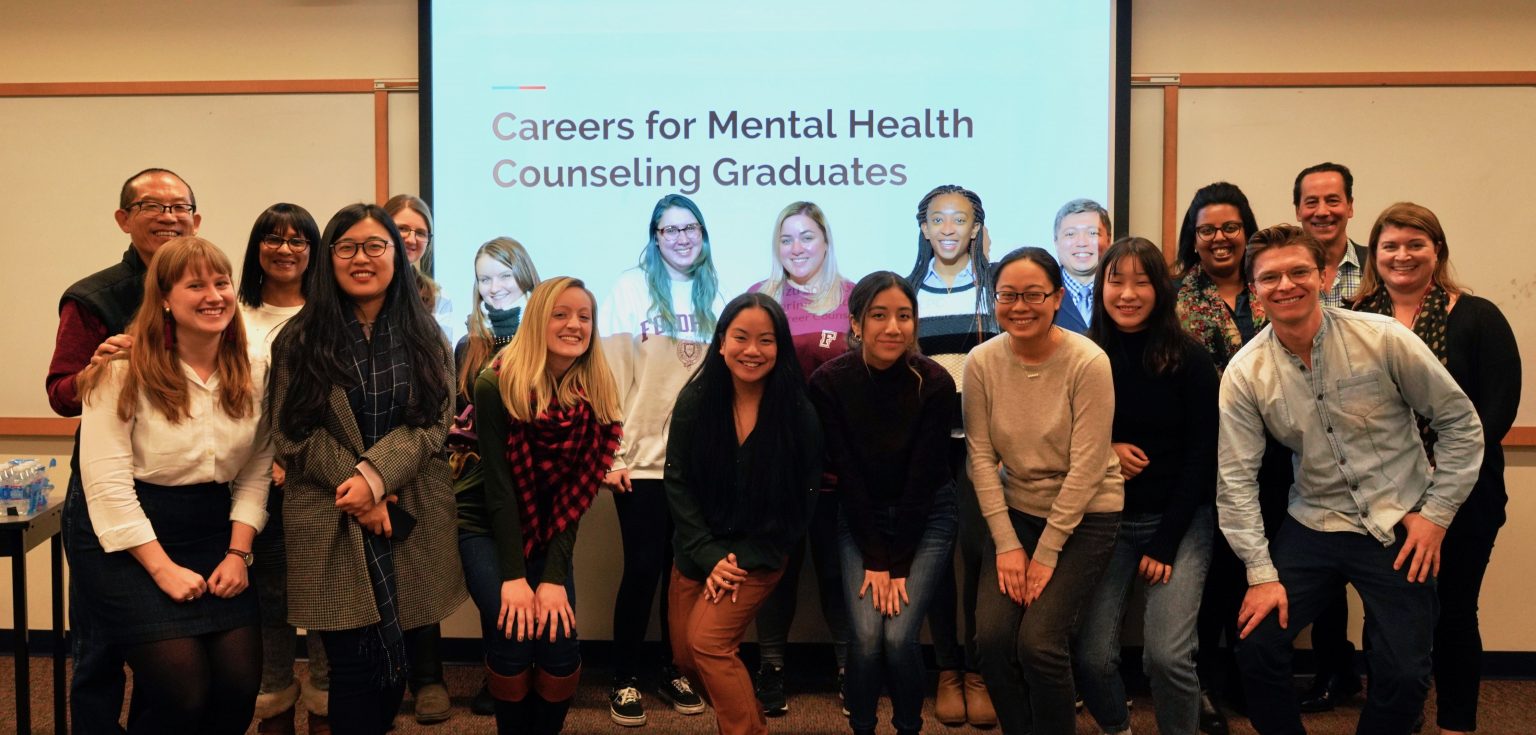A recent career workshop at the Lincoln Center campus aimed to answer that question for Graduate School of Education (GSE) students in the mental health counseling program.
“A lot of our classmates were curious around what different career paths they may have after graduation,” said Raya Abat-Robinson, GSE ’20. “This [workshop]helps us understand the different pathways that are possible.”
On Nov. 21, a group of graduate students gathered in a Lowenstein classroom and listened to two people who once stood in their shoes: Fordham career counselors Bizu Solomon, GSE ’15, who studied counseling at Fordham, and Jorimel Zaldivar, who obtained his master’s in counseling in mental health and wellness from New York University and, as a graduate student, interned with Fordham career services. The event, which coincides with National Career Development Month, was spearheaded by Fordham’s Student Association for Mental Health Counseling (SAM).
The mental health counseling program has been one of the school’s most popular programs for many years, said Joseph Ponterotto, Ph.D., a GSE professor who coordinates the master’s degree program, at the beginning of the event. About 140 people apply each year for 30 to 35 spots.
“For 13 years, we’ve been a thriving, robust, program,” he said. “It’s still, though, a pretty new field, relative to social work and psychology … That’s why a presentation like this, in terms of careers and the way to go and what you can do with the cognitive skills and the license that you’ll have, is so important.”
Fordham graduates have gone on to work at a variety of places, from LGBT support and counseling centers to Google to Mt. Sinai Medical School, Ponterotto said.
In a PowerPoint presentation, Solomon and Zaldivar showed attendees some of their career options. They could become crisis intervention therapists who work with victims and survivors in emergency rooms or disaster relief centers. They could conduct mediation with couples who are close to the end of their relationships. They could also work as health educators in corporate wellness programs, which are gaining popularity, said Solomon.
“So, for clarity, mental health counselors could, in theory, be financial aid counselors?” asked a student sitting in the audience.
“You can apply those same skill sets. If you think about it, the students that they meet with are under a lot of stress and anxiety. Those types of skills that you’re bringing in would be invaluable,” Zaldivar replied.
The November presentation was among career workshops that are given to other programs not only at GSE but also at the whole University. It was helpful for many students, including Jamez Anderson, a first-year mental health counseling student who wants to work with adolescents after she graduates in May 2021.
“I want to work one-on-one and be a therapist,” Anderson said. “So it was really eye-opening to see that there are so many other jobs and positions that you can have with just this degree.”


